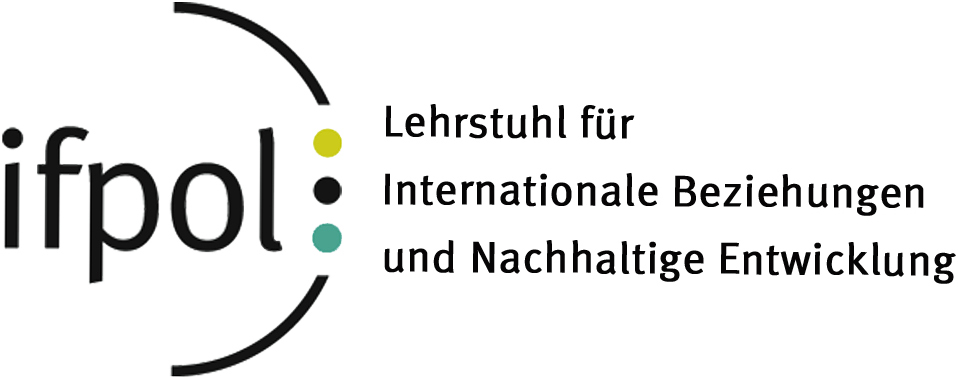

In the research field of sustainable consumption, the team of the Chair of International Relations and Sustainable Development considers the question of human needs in terms of living a "good life" and its implications for limits on human consumption (in the sense of overuse of planetary resources). The main focus on inquiry in this context is the embeddedness of consumption in global political, economic and cultural structures. Thus, “sustainable lifestyles” are considered to be question of “sustainable societies”. The topics of power, justice and wellbeing as well as the concepts of "Consumption Corridors," "Strong Sustainable Consumption Governance." and “1.5°Lifestyles/Societies” are at the centre of our analysis of the role of consumption in a sustainability transformation.
Other issues explored in this context are indicators of quality of life and of sufficiency oriented political and economic systems. In collaboration with colleagues at the WWU Münster, the TU Darmstadt and the University of Twente, for example, we are evaluating indicators and indices in terms of their ability to capture a holistic understanding of quality of life and the implications of such indicator use for analyses of the relationship between democracy and sustainability.
Relevant projects include Consumption Corridors, 1.5Lifestyles, Mover, Resolve , and Enough to transform.Close thematic connections exist to other main fields of research at the Chair such as research on power, agrifood governance, and energy policy.
Selected publications on this topic
- Fuchs, Doris, Julia Steinberger, Elke Pirgmaier, William Lamb, Lina Brand-Correa, and Jonathan Cullen. 2021. A corridors and power-oriented perspective on energy service demand and needs satisfaction. Sustainability: Science, Practice and Policy 17(1): 163-173, doi.org/10.1080/15487733.2021.1912907.
- Fuchs, Doris, Marlyne Sahakian, Tobias Gumbert, Antonietta Di Giulio, Michael Maniates, Sylvia Lorek and Antonia Graf. 2021. Consumption Corridors: Living Well within Sustainable Limits. London: Routledge. library.oapen.org/handle/20.500.12657/46919.
- Fuchs, Doris, Bernd Schlipphak, Oliver Treib, Le Anh Nguyen Long and Markus Lederer. 2020. “Which Way Forward in Measuring the Quality of Life? A Critical Analysis of Sustainability and Wellbeing Indicator Sets.” Global Environmental Politics 20(2): 12-36. doi.org/10.1162/glep_a_00554.
- Fuchs Doris. 2020. ‘Living Well within Limits: the Vision of Consumption Corridors.’ In Routledge Handbook of Global Sustainability Governance, edited by Kalfagianni Agni, Fuchs Doris, Hayden Anders, 296-307. London: Routledge.
- Lorek Sylvia, Fuchs Doris. 2019. ‘Why only strong consumption governance will make a difference.’ In A Research Agenda for Sustainable Consumption Governance, edited by Mont Oksana, 19-34. Cheltenham: Edward Elgar.
- Fuchs, Doris, Sylvia Lorek, Antonietta Di Giulio and Rico Defila. 2019. „Sources of power for sustainable consumption: Where to look”. in Martiskainen, Mari, Lucie Middlemiss and Cindy Isenhour (Hrsg). Power and Politics in Sustainable Consumption Research and Practice. London: Routledge, 62-83.
- Fuchs, Doris; Di Giulio, Antonietta; Glaab, Katharina; Lorek, Sylvia; Maniates, Michael; Princen, Thomas; Ropke, Inge. 2015. "Power: The Missing Element in Sustainable Consumption and Absolute Reductions Research and Action". Journal of Cleaner Production. http://dx.doi.org/10.1016/j.jclepro.2015.02.00.
- Di Giulio, Antonietta; Fuchs, Doris 2014. „Sustainable Consumption Corridors: Concept, Objections, and Responses”. GAIA 23/S1: 184-192.
- Fuchs, Doris; Lorek, Sylvia. 2005. „Sustainable Consumption Governance. A History of Promises and Failures“. Journal of Consumer Policy 28 (3): 261–288. Reprinted in Dauvergne, Peter (Ed.). 2013. Environmental Politics. Houndmills: Edward Elgar, 652-679.

